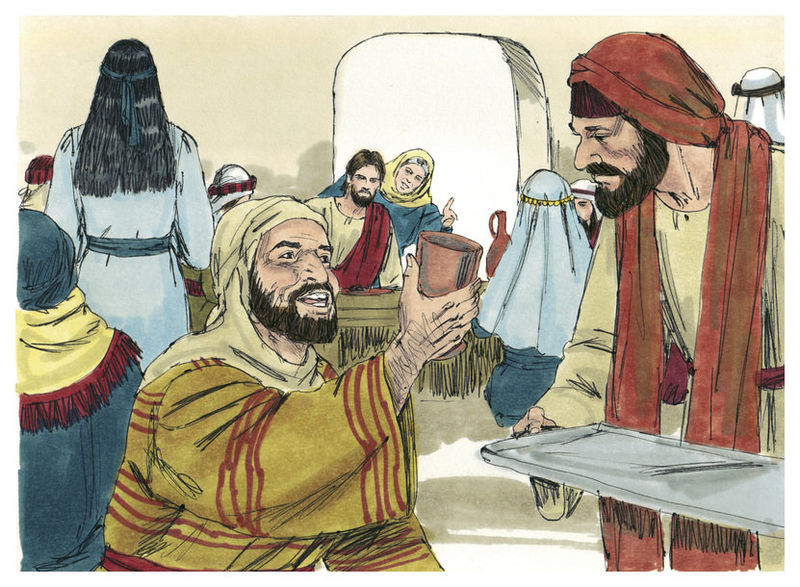ARE YOU UNABLE TO RESOLVE YOUR ANGER? THESE EXERCISES CAN PROVIDE HELP.
I. CLEANSING THE TEMPLE
This exercise is based on biblical principles found in Jesus’ cleansing of the temple (John 2:13-22). [1]
“13 Now the Passover of the Jews was at hand, and Jesus went up to Jerusalem. 14 And He found in the temple those who sold oxen and sheep and doves, and the money changers doing business. 15 When He had made a whip of cords, He drove them all out of the temple, with the sheep and the oxen, and poured out the changers’ money and overturned the tables. 16 And He said to those who sold doves, ‘Take these things away! Do not make My Father’s house a house of merchandise!’ 17 Then His disciples remembered that it was written, ‘Zeal for Your house has eaten Me up.’ ” John 2:13-17
PRINCIPLE 1 – JESUS KNEW THE TEMPLE NEEDED TO BE CLEANSED
Jesus, the Owner of the temple, took full responsibility to cleanse His own temple. He could have made the moneychangers and sellers of doves who were the perpetrators in the account clean up their own mess, but He didn’t. He cleansed the temple.
In most of the accounts of Jesus cleansing the temple, the temple refers to a physical building in Jerusalem (cf. Matt. 21:12; Mark. 11:15; Luke 19:45). But in John’s account the temple refers to Jesus’ body:
“18 So the Jews answered and said to Him, ‘What sign do You show to us, since You do these things?’ 19 Jesus answered and said to them, ‘Destroy this temple, and in three days I will raise it up.’ 20 Then the Jews said, ‘It has taken forty-six years to build this temple, and will You raise it up in three days?’ 21 But He was speaking of the temple of His body. 22 Therefore, when He had risen from the dead, His disciples remembered that He had said this to them; and they believed the Scripture and the word which Jesus had said.” (John 2:18-22).
This is the first insight into the fact that Jesus was changing the dwelling place of God from the physical temple to the physical body of a human being. The apostle Paul develops this thought a little later when he teaches that believers in Jesus are God’s temple: “16 Do you not know that you are the temple of God and that the Spirit of God dwells in you? 17 If anyone defiles the temple of God, God will destroy him. For the temple of God is holy, which temple you are.” (I Cor. 3:16-17; cf. 6:19-20). God’s plan all along was to dwell inside believers in Jesus. We are His holy temple. And our temples can become defiled through many different avenues, including manipulation, abuse, and neglect from others. When we get defiled through life, our temple gets defiled also and needs to be cleansed as well.
Just as Jesus cleansed His holy temple, which was defiled by others, so we are responsible to cleanse our temples when they are defiled by the abuse of others. Even if our perpetrators are sorry, he or she cannot cleanse our temple. They cannot remove the wounds placed inside our souls. By cleansing His own temple, Jesus sends us a clear message: We are responsible to cleanse our own temple as well.
PRINCIPLE 2 – JESUS IDENTIFIED THE SIN THAT CAUSED THE DEFILEMENT
When Jesus cleansed His temple early in His ministry, He identified the sin that defiled it when He said, “Take these things away! Do not make My Father’s house a house of merchandise!” (John 2:16). In Luke 19:46 when Jesus cleansed His temple near the end of His earthly ministry He said, “It is written, ‘My house is a house of prayer,’ but you have made it a ‘den of thieves.’” (cf. Matt. 21:13; Mark 11:17). Jesus makes it very clear why He was cleansing His temple. They were taking something holy and misusing it to profit themselves. Most of the people who have hurt you have no concept of your holiness or preciousness. You have felt used or abused during the incidents in which you were wounded. You will need to identify the sin or wounding that has been done to you by those who have defiled your temple.
PRINCIPLE 3 – JESUS ENGAGED HIS ANGER AT THE INJUSTICE
Christ engaged His anger both physically and verbally at the injustice. He turned over the moneychangers’ tables and drove out the sacrificial animals. This is why the Jewish leaders challenged His authority to create such a ruckus.
Jesus was not having a bad day. This was an act of His will. It was a premeditated act of obedience. This is important to understand because the cleansing of your temple will take an act of your will. As you walk through these exercises, it will become an act of your obedience as well.
How do we know this was a premeditated act on Jesus’ part? The Bible tells us, “14 And He found in the temple those who sold oxen and sheep and doves, and the money changers doing business. 15 When He had made a whip of cords, He drove them all out of the temple, with the sheep and the oxen, and poured out the changers’ money and overturned the tables.” (John 2:14-15). Jesus “found” the misuse of the temple which indicates He was looking around and witnessing the peoples’ mistreatment of His holy temple. Then He gets a bunch of cords and takes the time to make “a whip.” We don’t know how long it took Jesus to make the whip, maybe minutes or hours, but He had already decided to use that whip when He entered His temple to cleanse it.
As you proceed to do this exercise. You will need to make choices to prioritize your time to prepare for cleansing your temple. Those who go about this intentionally and purposefully will receive more benefit for their lives.
PRINCIPLE 4 – THE TEMPLE WAS RESTORED TO ITS ORIGINAL ORDER
The record of Jesus cleansing the temple offers a picture of how to heal wounds inside your temple. After Jesus engaged His righteous anger and rage, His temple was cleansed. Only Jesus had the power to cleanse His own temple. No other prophet or king had done so before Him or after Him. He alone could clean His house. In the same way, we alone can clean our own temples with Jesus’ help.
PRACTICAL APPLICATION – “CLEANSING THE TEMPLE” EXERCISE
1. WRITE AN ANGER LETTER
The first step in the cleansing of your temple is to write an anger letter to the person who has hurt you, but do not send it. Imagine this person in the room with you, but he or she is unable to talk or move. You can say whatever you need to say to him or her in this letter. This is not a letter to suppress your emotions, but rather to vent all the thoughts and feelings of hate, disgust, anguish, and resentment that have been robbing your soul. Nor is this an “I forgive you” letter. That will come later. This letter is the place to remove the anger that has infected your soul.
2. GET WARMED UP
In Jesus’ situation, He made a whip for Himself. It is recommended you do not use a whip, but a padded baseball bat or tennis racket could be helpful. When I first did this exercise, I took a golf club and hit a paper picture of my perpetrator attached to a blanket that was draped over a stuffed ball and other blankets underneath. Begin with small hits. Then use medium, large, and extra-large hits. Do this three times. Warm up your voice as well. Shout “No!” each time you hit the pillow. Use small, medium, large, and extra-large “Nos” with your voice. This may feel awkward but removing this buildup of pain from your soul and spirit provides great relief. That is why it is important to be warmed up physically.
While warming up physically, make sure you are home alone. Disconnect or turn off the phone so that you are not disturbed.
***Note: Before doing this, if you have a heart condition or other medical condition that warrants talking to your medical doctor, please do so. Also, please do not substitute this exercise for professional Christian counseling. In fact, it is recommended that you are in counseling before doing this exercise.
3. READ YOUR LETTER ALOUD.
After your physical warm-up, take the letter you wrote to your offender and read it aloud to your imaginary offender. When I first did this, I taped a paper picture of my offender to a pillow and propped it up in a chair across from me. If your offender’s name is Toby, then you would read as follows: “Toby, how could you have done this to me? I trusted you!…” Of course, Toby is nowhere around. You certainly don’t need to do this with him or her around. You are simply in a room alone just reading the letter aloud.
4. ENGAGE YOUR ANGER PHYSICALLY AND VERBALLY
After reading your letter, pick up your bat. Hit the bed or pillow and symbolically let “Toby” have it. You can yell, scream, and cry, but release the emotional infection that has been robbing you. You can symbolically tell him that his secrets are not controlling you anymore. He was to blame! You have no limits as to what you can say to your offender. For once, let go of all the emotional control that is keeping this wound infected. Let it out!
This may last fifteen minutes to an hour. Your body will let you know when you have completely put this behind you – spiritually, emotionally, and physically.
Someone has given you something toxic, and you have been unhealthy ever since. After you remove it from you, you will feel so much better. You are worth getting it all out!
INSIGHTS:
– When you do this cleansing exercise, only work on one offender at a time. If three different people have offended you, then you will need to complete three different sessions. Do not try to go through this exercise just once for all the different people who have offended you. Each “bullet” (wound) needs to be taken out separately.
– If several people have caused you trauma, make a list of them. Start with the least painful trauma and work your way up to the larger offenses. In this way, you will get better skilled at the exercise and will know what to expect.
– You may have different experiences and gain helpful insight as you work through your list. You may think offender number three was the worst, and yet an offender whom you considered less significant actually is a much larger venting experience for you.
– Remember you are cleansing your temple so that you can experience the best intimacy possible in your relationships. Carrying pain inside us causes us to protect ourselves from being hurt. Releasing the pain can cause us to be more open to trusting others again.
II. FORGIVENESS EXERCISE [2]
This next stage of healing is to be done after you have completed the cleansing the temple exercise. Wait about five days after you have finished the anger work of cleansing the temple concerning a particular offender. Five days or more after completing the anger work you will be feeling better. It is much like after you get over a cold, you feel that the junk in your lungs is gone, and you can breathe more clearly and easily.
With the forgiveness exercise you will approach the particular offender you did the anger work with in much the same way. Instead of contacting them if they are alive, you will role play with them. This exercise is most effective when you choose to forgive or release the debt your offender owes you. As with the anger work, do only one offender at a time.
Jesus taught, “For if you forgive men their trespasses, your heavenly Father will also forgive you. But if you do not forgive men their trespasses, neither will your Father forgive your trespasses.” (Matt. 6:14-15). Forgiveness is so important because it is connected to God’s forgiveness of us. I cannot enjoy fellowship or closeness with God the Father if I am not willing to forgive those who have hurt me. Being unforgiving connects us to our past hurts and makes it difficult to fully enjoy the blessings of our relationship with God and with other people in the present.
One of the ways we can know we have not forgiven someone is we keep rehearsing bitter and defensive thoughts toward those who have hurt us. We keep going “back to court” in our minds with all the things we wish we had said or want to say to them. [3] God invites us to release “from the heart” the hurt others have caused to us. Forgiveness requires the cancelling of a debt (cf. Matt. 18:21-35). Perhaps the person who has hurt us owes us an apology, justice, money, repentance, restoration, suffering, understanding, etc. [4] God wants us to cancel the debt they owe us.
This forgiveness exercise involves three steps. [5] Select one offender you’ve already done the anger work with and go through this process. Do this exercise while you are home alone. You will need two chairs.
1. ASSUME THE ROLE OF THE OFFENDER
Place the two chairs facing each other. Pick a chair and sit facing the other chair. We will call the chair in which you are sitting, “Chair A.”
While you are sitting in chair A, role-play your offender. You are now this person. As you role-play this individual, have him or her apologize and ask for forgiveness for all that they have done to you. They are hypothetically confessing to you in the other chair (chair B). If I were doing this exercise about my perpetrator, I would sit in chair A as I role-played my perpetrator. I would verbally own his sin, apologize and ask for forgiveness for the things I did and didn’t do to Jeff in chair B.
As I play my perpetrator, I might say, “Jeff, I need you to forgive me of…” Now since I am playing my perpetrator, I can say what he needs to say to me in order to own and apologize for his sin against my life.
2. ROLE-PLAY YOUR RESPONSE AS THE ONE OFFENDED
Now I have played my perpetrator as he asked forgiveness for several offenses against Jeff, who was symbolically sitting in chair B. Yet as the one offended, I heard by offender own his sin and ask forgiveness for it. Now I can start step two.
I begin by physically moving to sit in chair B, now role-playing myself.
After hearing my perpetrator ask for forgiveness, I now decide how I will respond. Above all be honest. If you are not ready to forgive your offender, tell him or her. You could say, “I’m just not ready to do this yet, but I will try again in a few weeks.”
Whatever you do when you play yourself, don’t be a phony or do what you think you should do. Do what is real and authentic.
If you are able to forgive your offender, then tell him or her. In our example, Jeff is now talking to his perpetrator in the opposite chair. In my exercise, I had a paper picture of my perpetrator’s face taped to chair A.
I could say, “___, I forgive you for …” I could really release him from his abuse and neglect of my soul and the impact his actions had on my life.
If you forgave your offender, you might consider praying a prayer of forgiveness with him or her. Your prayer might read like the following:
Father God, Your Word says that to be forgiven, I must forgive. And so I come to You in the name of Jesus, in obedience and love, and I bring ___ (Offender’s name), before You. I cancel his debt to me (apology, change of behavior, confession, repentance, humiliation, suffering, etc.). I choose to forgive the hurt against me, and I ask that You would not hold these sins against ___ on my account. I release ___ from any desire on my part to see him punished. In fact, as You have told me to do, I bless ___ in Your Son’s name, Jesus. You know ___’s desires, needs, and hurts. You know what would bless him. And so, I ask that You pour out Your love and healing to ___ and bring him Your highest good, because Your name is Good and Love, and You are not willing that any should perish. Now also, Father, please heal my heart and set me free to love ___ as You do. In the mighty name of Jesus Christ, I pray. Amen.
If you are not yet ready to forgive your offender, work through the Hindrances to Forgiveness Exercise in Appendix 5 which is adapted from Michael Dye’s book The Genesis Process. [6] Get out your calendar and set up a date in about three to four weeks when you will try this forgiveness exercise again. Do this every month to measure your progress until you ready to forgive.
3. ROLE-PLAY THE OFFENDER’S RESPONSE TO FORGIVENESS
In our example, Jeff has forgiven his perpetrator. Now I physically get up and sit down in chair A again and play the role of my offender. Now it is his offender’s turn to respond to Jeff’s forgiveness.
Jeff’s perpetrator (role-played by Jeff) might say, “Thanks, Jeff, for forgiving me for…” When Jeff’s offender is done talking to Jeff the exercise is over.
Let’s review:
1. Start in chair A as the offender asking for forgiveness.
2. Now sit in chair B as yourself, and honestly respond to your offender’s request for forgiveness.
3. If you have forgiven him or her, go back to chair A and play the offender responding to the forgiveness.
COMMENTS:
This can be a very emotional exercise for those with extremely abusive backgrounds, so have a box of tissues nearby. In addition, make sure the phone, doorbell, or anything else will not interrupt you. It will be important for you to stay focused.
Do this forgiveness exercise only after you have completed the Cleansing the Temple exercise. Many individuals attempt to forgive before they address their wounds and heal. Jesus cleansed the temple (Luke 19:45-46) before He issued the words, “Father forgive them” (Luke 23:34). Cleansing comes first, then forgiveness.
In both exercises, each offender gets his or her time in the chair with you. You must role-play each one and receive an individual apology from each. Don’t role-play more than one offender in a day.
Releasing debts your offender owes you will free you if you complete your Cleansing the Temple work first. I have personally experienced much freedom through these exercises as God met me where I was at. If my offenders were still alive, I have found much freedom to love them as God loves me.
Let’s pray together:
Lord Jesus, I invite you to help me process my woundedness and to apply these exercises to my life. Comfort me, Lord Jesus, and lead me to still waters where I can drink of the intimacy that You have for me. In Your name Lord Jesus, I pray. Amen. [7]
FOOTNOTES:
[1] Adapted from Doug Wiess, Intimacy: A 100-Day Guide To Lasting Relationships (Lake Mary, FL: Siloam Charisma Media/Charisma House Book Group, 2003), pp. 53-61.
[2] Adapted from Doug Weiss, Intimacy, pp. 62-66.
[3] Michael Dye, The Genesis Process: For Change Groups Books 1 and 2 Individual Workbook (Michael Dye/Double Eagle Industries, 2012), pp. 123-124.
[4] Ibid., pg. 124.
[5] Weiss, Intimacy, pp. 64-66.
[6] Dye, The Genesis Process, pp. 126-133.
[7] Adapted from Weiss, Intimacy, pg. 66.







